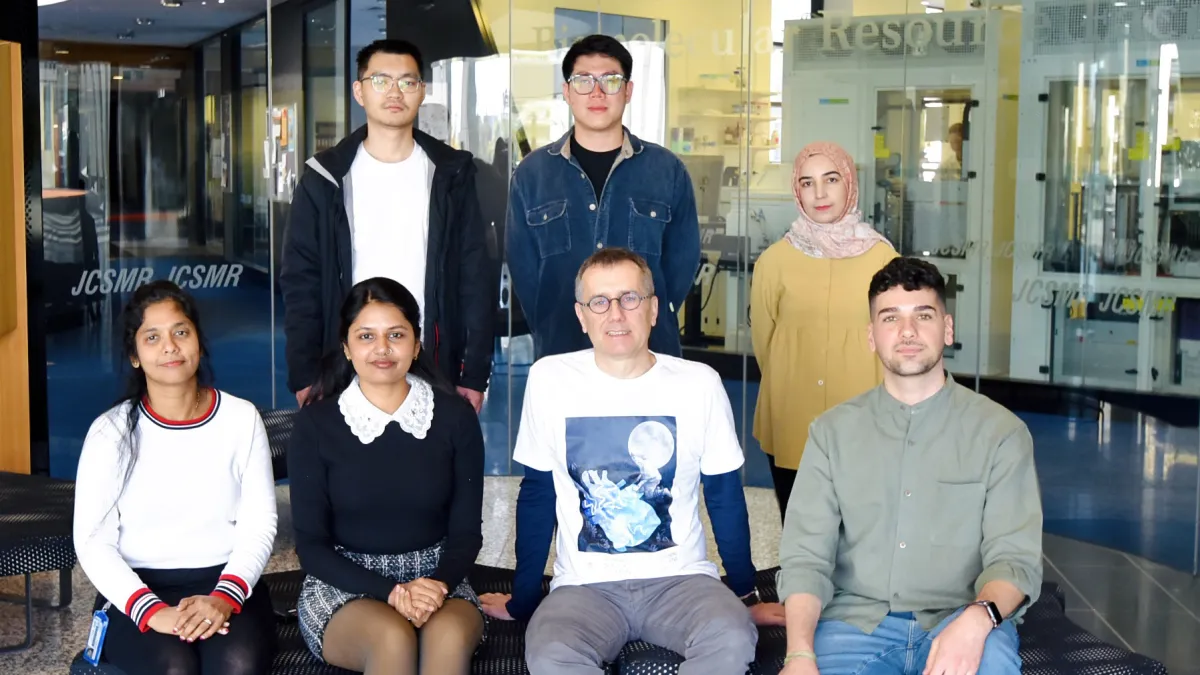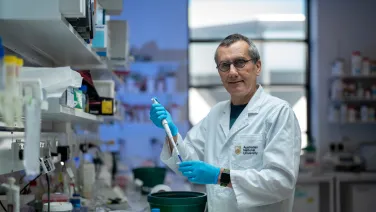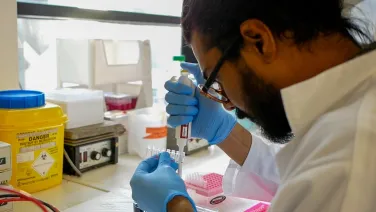The Preiss Group - RNA Biology
Our group studies the mechanisms and transcriptome-wide patterns of eukaryotic mRNA translation and its regulation by RNA-binding proteins and non-coding RNA.
Research themes
About
The Preiss Group is at the forefront of investigating RNA-level gene regulation in eukaryotes, a field of great significance due to the extensive transcription of our genome into diverse RNA molecules, many of which remain shrouded in mystery regarding their functions. Our overarching goal is to unravel the intricacies of transcription outputs, shedding light on how RNA processing, modification, and dynamic RNA-protein interactions shape the function of the transcriptome. Given the prevalence of RNA dysregulation in disease, our research addresses various facets of human health, with an emphasis on cancer and cardiac biology. Our research relies on mammalian and yeast cell culture models, employing a blend of classical molecular biology techniques and cutting-edge 'omics' approaches.
Much of our research revolves around messenger RNA (mRNA), which gained significant attention during the global COVID-19 pandemic due to the success of mRNA vaccines. mRNA holds the genetic code for protein synthesis, a process executed by the ribosome through initiation, elongation, and termination phases, each facilitated by distinct accessory factors. To gain deeper insights into the intricacies of mRNA translation mechanisms and their regulation by cellular signalling, RNA-binding proteins, and non-coding RNAs, we leverage specialised high-throughput sequencing techniques. Our contributions to understanding ribosome recruitment to mRNA during translation initiation are particularly noteworthy. We pioneered an innovative approach called "translation complex profile sequencing," related to the popular 'ribosome profiling' method. Additionally, we delved into how microRNAs influence translation initiation and how controlled transcription termination leads to the generation of mRNA isoforms, some of which are subjected to microRNA-mediated repression, while others evade it.
In the rapidly growing field of epitranscriptomics, which focuses on the functional analysis of RNA modifications, our group has played a pioneering role. We provided a first map of 5-methylcytosine in the human transcriptome, established its link to translation within mRNA molecules and are further exploring the enzymology and molecular function of 5-methylcytosine through ‘reader’, ‘writer’ and ‘eraser’ proteins.
Our fascination with circular RNAs, a surprisingly prevalent group of RNA molecules, has led us to investigate their unique biogenesis through 'back-splicing'. We now study their potential role as ‘molecular sponges’ and as unusual templates for protein synthesis.
Lastly, through the lens of proteomics, we are actively exploring the phenomenon of proteins that, in addition to their recognized functions, also bind RNA. This research has unveiled an unexpectedly frequent cross-talk between RNA biology and other cellular processes, including intermediary metabolism. We are now exploring, for selected examples, whether this means that a protein ‘moonlights’ to regulate its RNA-binding partner or whether the RNA regulates the protein’s already recognised function in a process termed ‘riboregulation’.
The Preiss Group is dedicated to advancing knowledge in these multifaceted areas of RNA biology. We enthusiastically welcome inquiries from prospective Honours or PhD students interested in joining our ongoing research projects.
Media links
2021
- Good Weekend's Who Mattered 2021: Australia's most influential people HEALTH & SCIENCE, The Sydney Morning Herald 27 November 2021
- ANU seeks commercial partner to bid for government mRNA deal The Canberra Times 1 June 2021
2016
- How cells master the art of reading life's recipes 21 July 2016
- Protein insights to help find heart disease cure 26 July 2016
- New honour for ANU medical researcher 17 April 2016
2015
- Unlocking the secrets of stem cell generation ANU media release and video clip
2014
- Researchers identify stem cells that can be reprogrammed The Canberra Times 11 December 2014
- International study a major step forward in stem cell treatment research ABC Online 11 December 2014
- Australian researchers discover new ways to grow body parts for transplant ABC News 11 December 2014
- ANU role in stem cell research Canberra Times 11 December 2014
- Dr Jen Clancy and Professor Thomas Preiss have their paper featured on the cover of Nature Chemical Biology 2 May 2014
- Professor Thomas Preiss awarded The Julian Wells Medal at Lorne 17 February 2014
- Further information on the recent reprogramming papers










